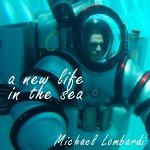 A recent CNN news piece reported on baby dolphin deaths in the Gulf of Mexico. The report went on to discuss that these deaths were not the norm in considering the shear numbers, and the time of year – that is very early in the birthing season, indicating that some births may be premature. The report went on to imply that this may be a consequence of the BP oil disaster. Makes sense.
A recent CNN news piece reported on baby dolphin deaths in the Gulf of Mexico. The report went on to discuss that these deaths were not the norm in considering the shear numbers, and the time of year – that is very early in the birthing season, indicating that some births may be premature. The report went on to imply that this may be a consequence of the BP oil disaster. Makes sense.
https://www.cnn.com/2011/US/02/24/gulf.dolphins/index.html
For the first time in Planet Earth’s history, one species and one species alone is causing a considerable global imbalance – and that species is Homo sapiens. The magnitude of our effects on the environment, in fact, have lead researchers to redefine our current geologic epoch the ‘Anthropocene‘ (or era of humans). This very topic was the subject of a recent article in the March (2011) issue of National Geographic Magazine in a piece entitled ‘the Age of Man’.
Historically, geologic time and cycles have been long drawn out while nature just ran its course in this closed system we call Earth. Since we’ve been around however, things have changed rapidly. So rapidly in fact that we can attribute them to distinct periods in human history – particularly coinciding with the industrial revolution. What’s scary is that unlike global geology and time, we humans have a brain. Soon, there will be more than 10 billion brains on this small planet, each making decisions that could have significant impacts on our global balance. Yes, it is very scary – we can make conscious decisions about our goings on and developments and can elect to continue or discontinue based on our observation and analysis of the cause/effects we set into motion. We humans now control the global cycle.
With this ability comes great responsibility, and that is where we need to wake up folks.
Back to our dolphins washing up on the beach – we need to understand the concept of ‘indicator species‘. By definition, an indicator species is an organism whose presence, absence or abundance reflects a specific environmental condition. Very often, microbes in soils are viewed as indicators of change in chemical composition say on a farm. Seeing more or less of a particular species might indicate health or poor quality of these soils. Planta and algal species are also typical indicator species in other ecosystems.
Now I understand fully well that the news is not the perfect barometer of biological imbalance, but in just the past few months, national headlines have been made with birds falling out of the sky, massive fish kills in inland watersheds, and now dolphins washing up on the beach. Isolated events? Perhaps. But consider the possibility that these are our new indicator species – due to anthropogenic stress on the environment. Our new indicators, are higher on the tree of life, and that should scare the you know what out of you. What’s next…monkeys falling out of trees?
Bottom line is that humans by their nature are selfish creatures, and are apparently not stopping their selfish pursuits at any cost. We can wait for study after study to prove our impacts right or wrong, but it’ll be too late. Look at the indicators folks…I beg this of you.
References
Nature (1962). Plankton Indicator Species and their Statistical Analysis Nature, 193 (4822), 1245-1246 DOI: 10.1038/1931245a0
Mattson, M., Mullin, K., Ingram, G., & Hoggard, W. (2006). AGE STRUCTURE AND GROWTH OF THE BOTTLENOSE DOLPHIN (TURSIOPS TRUNCATUS) FROM STRANDINGS IN THE MISSISSIPPI SOUND REGION OF THE NORTH-CENTRAL GULF OF MEXICO FROM 1986 TO 2003 Marine Mammal Science, 22 (3), 654-666 DOI: 10.1111/j.1748-7692.2006.00057.x
Nature (2003). Welcome to the Anthropocene Nature, 424 (6950), 709-709 DOI: 10.1038/424709b
Related articles
- Have We Entered The Anthropocene (New Man) Epoch? (lockergnome.com)
- New age researchers highlight how man is changing the world (scienceblog.com)
- Orchids Get Seeds Saved To Prevent Their Extinction (treehugger.com)
- Is Global Species Loss a Self-Fulfilling Prophecy? (treehugger.com)
- Understand Thresholds To Understand Problems (blogs.forbes.com)
- The Next Ice Age (discoveryenterprise.blogspot.com)


